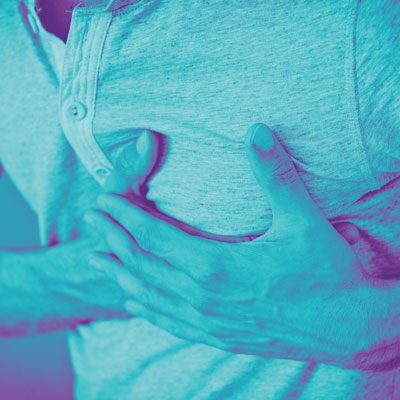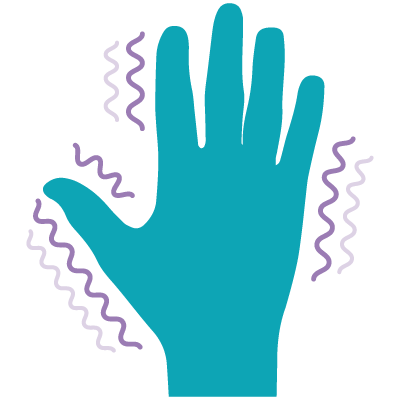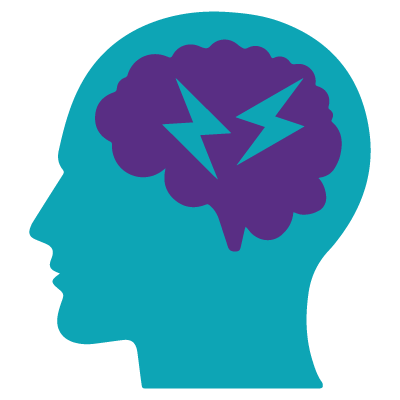Quitting Alcohol Cold Turkey
How the brain copes
Alcohol withdrawal is defined as a process the body goes through when someone abruptly stops consuming alcohol after a prolonged period.
Alcohol has a slow-moving sedating effect on the brain when consumed, and if you consume large quantities for a long time, the brain adjusts its natural chemistry to make up for the continuous effect. It does this by producing stimulating chemicals such as serotonin in large amounts.
If you stop consuming alcohol suddenly (cold turkey), the brain does not know how to function properly, and withdrawal symptoms occur. These vary from person to person, but often include trembling, anxiety, insomnia and other physical and mental symptoms. Many of these symptoms become worse when the brain is overstimulated.
The alcohol withdrawal process can be long and painful, but it is the first step to recovery. Here is important information on diagnosing and treating alcohol withdrawal.
What Causes Alcohol Withdrawal?
If you are a heavy drinker—even if you have not been diagnosed with alcoholism—you will likely experience some symptoms if you suddenly stop consuming alcohol. Many consume alcohol to reduce stress or anxiety. Why? Because alcohol helps you relax by increasing the effects of GABA, a powerful neurotransmitter responsible for creating feelings of calm within the body.
Alcohol also decreases the amount of glutamate your body produces, another neurotransmitter that creates feelings of excitability within the brain. Heavy drinking makes it difficult for the body to produce the amount of GABA and glutamate that your body craves, so more alcohol is required for the same outcome.
When you suddenly stop consuming alcohol, these two neurotransmitters are no longer being impacted, but your body is still producing too much glutamate and under producing GABA out of habit. You will then experience some symptoms of anxiousness or restlessness as a result. If you were a heavy drinker, your symptoms will likely be more severe than a more moderate drinker.
Stages of Alcohol Withdrawal
You may experience withdrawal symptoms as soon as eight hours after your last alcoholic drink. More symptoms usually appear within a day, and the most severe effects usually arise within two days. The American Academy of Family Physicians outlines the three basic stages of alcohol withdrawal. The alcohol withdrawal timeline includes these stages:

Stage 1:
During this stage, you may experience mild symptoms including headaches, anxiety, heart palpitations or insomnia.

Stage 2:
During this stage, you may experience the symptoms in the mild stage in addition to other side effects including abnormal breathing, increased heart rate or confusion.

Stage 3:
This is the most severe stage and symptoms may include hallucinations, disorientation or seizures. Without treatment by a healthcare professional, these symptoms may progress quickly and can be become life-threatening in extreme cases.
Alcohol Withdrawal Symptoms
Alcohol withdrawal symptoms usually occur within a predictable timeline after your last drink, but not everyone will develop the same symptoms. The most common withdrawal symptoms include:
- Irritability
- Agitation
- Anxiety
- Increased heart rate
- High blood pressure
These symptoms vary in severity depending on the individual and the level of alcohol regularly consumed before the withdrawal period. While less common, you may experience these more dangerous symptoms during alcohol withdrawal:

Tremors or excessive shaking:
Tremors are an involuntary muscle contraction leading to shaking movements in parts of the body including the arms, head, torso and legs. Tremors usually begin within 10 hours of your last drink and peak at 24 to 48 hours. Tremors are often accompanied by symptoms including increased blood pressure, rapid breathing, nausea, sweating and rapid pulse rate.

Alcohol hallucinosis:
While rare, alcohol hallucinosis is a serious complication that is characterized by auditory hallucinations that occur after stopping heavy alcohol consumption. It is common for individuals to see moving objects during an episode. Other individuals may see objects that appear to be falling coins or moving insects. This complication usually begins within a day of the last time you consumed alcohol.

Seizures:
Seizures may occur from six hours to 48 hours after the last time you consumed alcohol, and it is not uncommon for seizures to be severe and to last for several hours. The most dangerous seizures typically occur 24 hours after your last drink.
What Is Delirium Tremens?
Medical professionals estimate that 1 out of every 20 people will experience a severe form of alcohol withdrawal called delirium tremens. Delirium tremens is most common in individuals who have consumed a large amount of alcohol for more than 10 years. When this syndrome occurs, the brain is not able to adjust to the sudden absence of alcohol.
Delirium tremens creates a state of confusion and can lead to dangerous shifts in circulation, breathing and temperature control. Other possible symptoms associated with this syndrome include a reduced amount of blood flow to the brain, disorientation, loss of consciousness, soaking sweats and sleep disturbances.
Delirium tremens is a very serious condition and if you or someone you know is experiencing this form of alcohol withdrawal, seek medical help as soon as possible.
Alcohol Withdrawal Diagnosis
Alcohol withdrawal is simple to self-diagnose if you experience many of the typical symptoms. While there is no specific test that your doctor can perform to diagnose alcohol withdrawal, you may want to seek the help of a medical professional if you are not sure if you are experiencing withdrawal symptoms or if your symptoms are severe.
If you experience withdrawal symptoms from consuming alcohol, you have likely consumed enough alcohol to cause significant damage to your health. After your symptoms subside, you may want to visit your doctor to see if your alcohol consumption has caused damage to your liver, heart, nerves, gastrointestinal organs or blood cell counts.
If you are like most people, you may be hesitant to confess your habitual drinking to your doctor. It is important to be straightforward with your doctor regarding your behaviors so your withdrawal symptoms and any residual health problems can be properly addressed.
Treatment is critical
If you experience several withdrawal symptoms—particularly delirium tremens— the safest place for you to receive treatment is in a medical facility. For delirium tremens, you may need to be treated in the intensive care unit of a specialized hospital. While in the hospital, your vital signs will be closely monitored in case a higher level of support is needed during the withdrawal process.
A doctor may prescribe you a medication to help with the withdrawal symptoms. Your doctor may prescribe a variety of medications depending on your alcohol withdrawal timeline and the severity of your symptoms. Your doctor may also suggest that you begin to take a variety of vitamins and minerals immediately. Most alcohol users suffer from a shortage of critical vitamins including folate, magnesium, zinc and thiamine. Your doctor can help you assess your situation and will let you know which minerals to take and for how long.
Prognosis
After withdrawal is complete, you must not begin consuming alcohol again. Entering an inpatient or outpatient alcohol treatment program can help improve your chances of staying sober.
It is estimated that only 20% of alcoholics can stop drinking alcohol permanently without the help of a treatment program such as Alcoholics Anonymous. Of those who regularly attend AA meetings, 44% of those who abstain from alcohol for a year have a good likelihood of remaining sober for at least another year.
On average, an alcoholic who does not remain sober can expect to have a decreased life span and may develop many serious health problems including cirrhosis.
Contact Clean Recovery Centers for Help Today
Do not be afraid to seek help if you have a problem with alcohol. While recovery can be difficult, alcoholism can be treated effectively. If you are experiencing alcohol withdrawal problems or you want help to stop drinking, call Clean Recovery Centers today at 888-330-2532. They have a variety of alcohol treatment programs including detox, outpatient, residential, inpatient and telemedicine options. You deserve to experience healing from addiction. Take back your life and begin the recovery process today.


